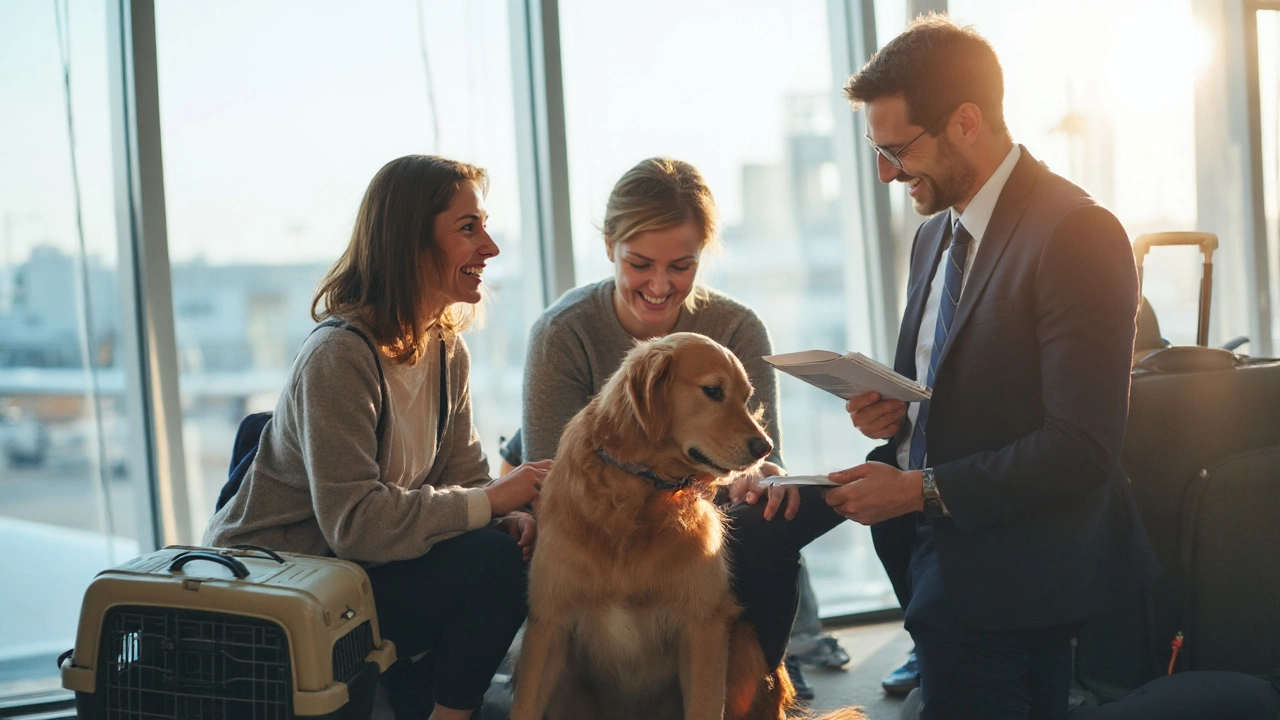Dog Airline Rules You Need to Know Before You Fly
Planning to hop on a plane with your dog? It can feel like a maze of rules, fees, and last‑minute surprises. The good news is you don’t have to guess. Below are the real‑world rules most UK airlines use, plus proven tricks to keep the journey smooth for you and your four‑legged friend.
Cabin vs. Cargo: Where Your Dog Can Go
First question: can your dog sit beside you, or does it have to travel in the cargo hold? Most carriers allow dogs under 8 kg (including the carrier) in the cabin, but each airline sets its own weight limit and carrier dimensions. A typical cabin carrier must fit under the seat – think about 45 cm long, 30 cm wide, and 25 cm high. If your pooch is bigger, you’ll need to book a cargo space. Cargo isn’t a mystery; it’s a temperature‑controlled, pressurised hold with strict handling procedures. Ask the airline for their specific cargo checklist – you’ll usually need a health certificate issued within 10 days of travel.
Paperwork, Vaccinations, and Health Checks
Nothing stops a flight faster than missing paperwork. The standard pack includes:
- Pet passport (or an official veterinary health certificate for non‑EU flights).
- Rabies vaccination proof – given at least 21 days before travel.
- Tapeworm treatment evidence, required by some UK carriers for dogs travelling to certain destinations.
- Microchip number that matches the passport details.
Keep a digital copy on your phone and a printed copy in your carry‑on. Some airlines also ask for a recent blood test to confirm rabies antibody levels – check the airline’s FAQ early to avoid a surprise.
When you book, inform the airline that you’re traveling with a dog. Seats next to the aisle are usually best – you’ll have room to open the carrier without blocking the aisle, and you won’t disturb other passengers when you need to give water or check on your pup.
Now for the little things that make a huge difference:
- Label the carrier with your name, phone number, and “Live Animal”.
- Attach a small bag of treats and a favorite toy to keep your dog calm.
- Arrive at the airport at least two hours early; airline staff need extra time to check paperwork.
- Never feed a large meal right before the flight – a light snack an hour before helps avoid nausea.
If you’re flying internationally, double‑check destination entry rules. Some countries demand a blood test, a waiting period, or a specific de‑worming schedule. A quick call to the embassy or a vet who specialises in travel can save you a costly re‑booking.
Finally, remember that each airline may charge a different fee – anywhere from £30 to £100 for cabin travel, and more for cargo. Some credit cards or travel insurance policies cover these fees, so it’s worth a quick look before you pay out of pocket.
Bottom line: treat the dog airline rules like a checklist, not a mystery. Verify weight limits, gather the right documents, pick the right carrier, and give yourself plenty of buffer time at the airport. Follow these steps and you’ll turn a potentially stressful trip into a smooth, enjoyable adventure for both you and your dog.
- Morgan Ainsworth
- 0 Comments
Do Dogs Need Insurance to Fly? Travel Requirements and Tips for Flying with Your Dog
Wondering if your dog needs insurance to fly? This guide breaks down pet airline rules, insurance benefits, and smart tips for safe, hassle-free travel with dogs in 2025.
View More
